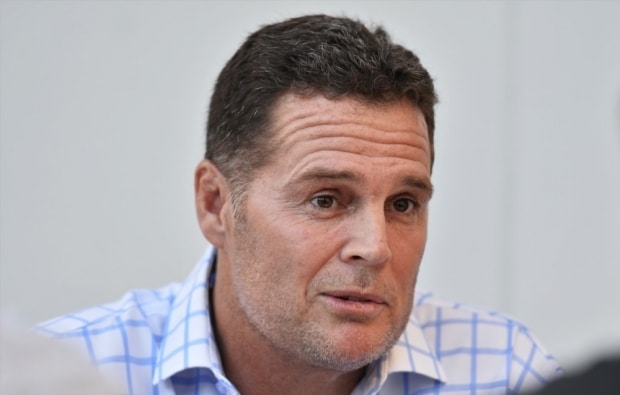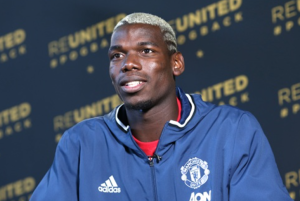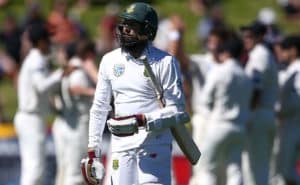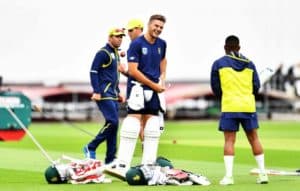The Springboks’ chances at the 2019 World Cup will hinge on the changes made to the South African rugby system this season, writes JON CARDINELLI.
‘Allister could tell a few stories about SA Rugby if he wanted to,’ a source told me last November. ‘A lot [about SA Rugby’s lack of support] could come out in the near future.’
The Boks were in Paris at that point, licking their wounds after a record defeat to Ireland in Dublin. Not for the first time, Coetzee was rumoured to be in the firing line. Not for the first time, there were reports of the coach clashing with his SA Rugby bosses behind closed doors.
Several months later, a private letter addressed to SA Rugby’s CEO Jurie Roux found its way into the media. The move had the desired impact in that Coetzee eventually received his golden handshake and SA Rugby’s attitude towards the coach and the team was laid bare.
Nick Mallett was fired after he complained about ticket prices. Jake White, who butted heads regularly with the suits, wasn’t retained after the Boks won the World Cup in 2007. Since readmission, there have been numerous examples of the decision-makers at SA Rugby, and indeed the South African rugby system as a whole, working against the national team rather than for its benefit.
Many of Coetzee’s gripes are the gripes of his predecessors. White, Peter de Villiers, and Heyneke Meyer all bemoaned the backward system that saw the Super Rugby franchises determining how the elite players were managed. The slow rate of transformation at the lower levels has impacted negatively on the national side for some time. According to SA Rugby’s Strategic Transformation Plan, the national coach must field a Bok team that is 45% black in 2018 – in an effort to hit the 50% target in 2019 – even though many of the Super Rugby sides have failed to meet their requirements in recent years.
And yet Coetzee is far from blameless for the state of the national side.
White won the 2004 Tri-Nations and the 2007 World Cup in spite of the suits and the system. De Villiers guided the Boks to another Tri-Nations title and a series win over the British & Irish Lions in 2009. Meyer’s class of 2013 recorded the best win-ratio (83%) since 1998. All three coaches finished their respective tenures with win-records greater than South Africa’s historical average of 62%.
There is certainly some truth in the assertion that SA Rugby doesn’t do enough to help the national team. Whether the system can be wholly blamed for a record that reads 11 wins in 25 Tests is another story.
The Boks will never be the best team in the world until the system changes. They do have enough resources to ensure that they win around 62% of their Tests, though, and feature regularly in the top three of the World Rugby rankings.
Coetzee failed the Boks on many counts. His side will be remembered for several record defeats over a two-year period, and for finishing with an overall win-record of 44%.
The Boks slumped to seventh in the World Rugby rankings last year. They’re currently in sixth place.
Coetzee, and indeed every man that holds that position in future, has to take some responsibility for the team’s results. Is the system so broken that a 44% win-record in of 25 Tests, two 57-point hidings to the All Blacks, a 38-3 thumping at the hands of Ireland, and an inaugural loss to Italy could not be avoided? The records of Coetzee’s predecessors, who faced similar challenges, suggests not.
On the other hand, one cannot help but lament the state of the game and how it is managed in this country. It’s little wonder that so few foreign coaches and players are willing to sign with South Africn teams, and that so many South African coaches and players opt to head abroad.
In early 2017, I was surprised to hear that Erasmus was considering a move back to South Africa. Surely, as a former coach at the Stormers and high performance manager at SA Rugby, he knew what he was getting into? Why would he give up all he had built at Munster to come back and wrestle with SA Rugby and all its problems?
This is the question that Erasmus must answer through his actions over the next few years. He’s returned to take up a director of rugby position, although it’s believed he will be the de facto Bok coach. This suggests that he will have more power than his predecessors, and that he may have a greater say in terms of how the national side is managed and run.
Needless to say, he would not have returned unless he truly believed that he could make a difference.
The challenges are many, though. Erasmus recently told journalists at a gathering in Stellenbosch that he wants to build relationships with the franchises to ensure that the elite players are managed better in future.
There are a number of players who are centrally contracted, but more needs to be done to increase that pool and ensure that the Boks build quality in depth. More needs to be done to back and develop black players at Super Rugby level – especially in the forwards – so that South African rugby can realise its national transformation goals without compromising the performance of the Bok side.
Coetzee was out of his depth at Test level and deserved to go. The exit of this coach, however must be followed by the exit of a flawed mindset and system. One would hope that Erasmus’s appointment leads to a breaking of the shackles, and a move towards significant change.
Photo: Ashley Vlotman/Gallo Images





